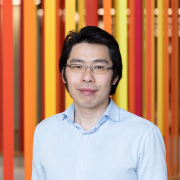This Connections seminar will share the strategies used by Dr Gee Chong Ling (Science) and Ms Melody Pei Li (Arts Design and Architecture) to increase student voice and engagement in their course through the Student Partner Initiative. The result of student-teacher collaboration is increased reflective practice and experiential learning resulting in a greater sense of community amongst students and opportunities for students' personal development. Gee and Melody will share the 5-step process of recruitment, active listening, review, co-design, and evaluation that allows them to ensure the student voice is heard and course improvements are implemented in real time. The innovative process was developed by Gee and Melody in 2023 following multiple iterations of running the student partner initiative in undergraduate courses in Science and ADA.
Learn more about the session:
Students as Partners initiatives have the potential to enable students and staff to collaborate on improving the teaching and learning experience (Mercer-Mapstone et al., 2017). Integrating learning theories and practices with human-centered design, we nurture a deep student and teacher partnership for personal development and community building. Following multiple iterations of a students as partners initiative applied across different disciplines, STEM and non-STEM courses to enhance student-teacher partnership, with student partners in their first year of degree program, to second, third and final year, an implementation strategy was established through a 5-step process of recruitment, active listening, review, co-design and evaluation. The proposed method emphasises reciprocity in the student-teacher partnership based on critical reflection on the students’ learning experience through a co-design process with student partners during the learning process (course or project), instead of the typical iterative design at the end of the learning period. Underpinned by Argyris & Schön’s (1974) double loop learning and design thinking, the 5-steps model applied to courses at various year/program levels displayed a positive impact towards learning experience, community building and personal development through an experiential learning process. The positive outcomes demonstrated through the emphasis of reciprocity overcame the challenges by adapting to diverse students’ learning needs and ensured an alignment of education goals through the partnership.
Reading materials:
Li, M. P., Ling, G. C., & Turnbull, K. (2023). Deeper student-teacher partnership in 5 steps: Adopting a design thinking approach to foster community building and personal development. ASCILITE Publications, 477-481.
Kotter’s 8 step. Kotter, J. P. (2007). Leading change: Why transformation efforts fail.
About the Speakers
Dr Gee Chong Ling is an education focussed lecturer who teaches undergraduate courses in the discipline of Biological Sciences. He adopts a highly structural approach to my educational change process, based on Kotter’s (2007) 8 step, double loop learning and design thinking strategy. Employing Students as partners represents his ‘human-centered’ piece of the educational change strategy promoting learning experience and personal development in his learners.
Melody Li is an education focused academic in animation. She worked over a decade as an animator/animation director in the animation and design industry before moving to her academic role. She is passionate in collaborating with students as partners for education innovation, community building, and personal development growth by adopting design thinking and experiential learning approaches. She explores methods of student and teacher partnership to empower students to build impact toward the world’s sustainability goals through community building projects and cross-disciplinary collaborations.
---
This event is a part of the Connections series, consisting of seminars and workshops that provide you with the opportunity to learn from your colleagues to inform your own teaching practice.

